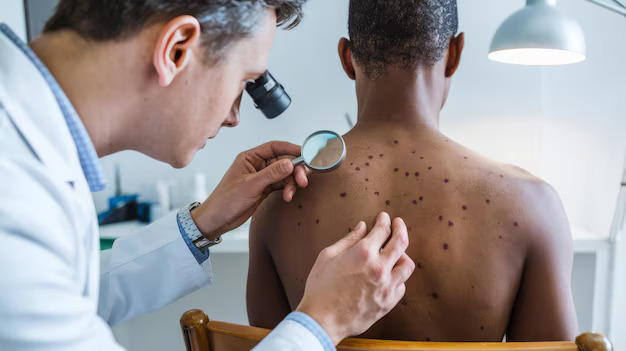Cancer is probably the most dreaded disease in the world, not only due to its severity but also because it masquerades behind usual symptoms. Most people ignore early warning signs, thinking that they are temporary or minor. Unluckily, by the time that these signs are given attention, the disease may have progressed already. Early detection can be the separating factor between a condition that can be managed and one that can be fatal. This is why it is important to be aware of your body’s subtle signals that something may not be quite right. Below are five symptoms of cancer that you may be denying — but shouldn’t.
Persistent Exhaustion That Won’t Go Away
It’s normal to get tired from time to time, particularly with long hours and a lack of sleep. But when your exhaustion continues even after getting enough sleep and eating well, it could be a warning sign. Unexplained fatigue can be a sign of many kinds of cancers, such as leukemia, colon cancer, or stomach cancer. Cancer cells burn most of the body’s energy reserves, and the immune system also runs overtime to combat the disease. This results in continuous exhaustion that does not respond to rest. If you are feeling tired all the time with no apparent cause, then a medical check-up and some basic blood tests may be needed to eliminate anything serious.
Unexpected Weight Loss Without Dieting
Losing a few kilos without trying may be a dream for some, but unexpected weight loss is an indicator of something much worse. If you’ve lost more than 5 kilograms in a short period without any change in diet or exercise, it’s time to investigate. Many types of cancer, including pancreatic, lung, and stomach cancer can cause sudden weight loss. This happens because cancer cells alter the body’s metabolism, making it burn calories faster or loses its ability to absorb nutrients efficiently. When weight loss is accompanied by other symptoms such as loss of appetite, nausea, or always feeling full, one should visit a doctor immediately.
Unexplained Pain That Persists
Pain is the body’s instinctive method of indicating that something is amiss. While periodic aches and pains are usual, pain that persists for weeks or months without a cause should not be dismissed. For instance, a persistent headache may indicate a brain tumor, and constant pain in the back may indicate bone or ovarian cancer. Chest pain may also indicate lung cancer. One must monitor the time, severity, and site of pain. Over-the-counter painkillers can cover up the pain but fail to resolve the underlying issue. Getting a comprehensive medical check-up, which could include imaging or scanning, can detect potential problems early.
Changes in Skin Appearance and Moles
Your skin can often reveal what’s going on inside your body. Sudden changes in the appearance of moles, freckles, or patches can be early signs of skin cancer. Warning signs include changes in color, irregular borders, rapid growth, or bleeding of moles. Skin cancer is among the most treatable cancers when detected early, but it can become aggressive if ignored. In addition to moles, jaundice can be a sign of liver issues, and darkened spots can be a sign of internal cancers such as ovarian or pancreatic cancer. Being aware of new or altered skin discoloration and seeing a dermatologist every now and then can literally save your life.
Unusual Bleeding or Discharge
Unusual bleeding is one of the most unmistakable symptoms of cancer, yet it is usually dismissed. For example, spitting up blood can indicate lung cancer, and spotting in the stool can be a sign of colon or rectal cancer. In women, unusual vaginal bleeding not related to menstrual cycles can be an indicator of cervical or uterine cancer. Bleeding in urine could be indicative of bladder or kidney cancer. Minimal amounts of unexpected bleeding or discharge requires prompt medical care. It’s always better to get checked early rather than waiting for the condition to get worse.
Other Underestimated Warning Signs
Apart from the above severe symptoms, there are some less obvious indicators that individuals overlook. Ongoing bloating, difficulty swallowing, chronic cough, hoarseness, or changes in bowel habits may be trivial but may indicate underlying cancers. Lymph node swelling, spontaneous bruising, or night sweats may also be initial indicators. The key is persistence — if a symptom persists for over two weeks and no obvious explanation exists, it’s worth exploring.
Why Detection Early Matters
Early detection significantly enhances survival rates. When detected early, treatment methods such as surgery, radiation, or immunotherapy are more successful and not as invasive. In contrast, cancers that are advanced tend to need more complicated treatments and affect the quality of life. Regular screening tests, such as mammograms, colonoscopies, and skin examinations can detect abnormalities before they are advanced. Prevention is not only about avoiding risk factors — it’s also about remaining attuned to the body’s warnings and taking action if something doesn’t seem right.
Lifestyle Habits to Reduce Cancer Risk
Although not all cancers can be avoided, there are some lifestyle habits that can lower your risk. A healthy diet of fruits, vegetables, and whole grains boosts the immune system. Staying away from processed foods and sweetened beverages can help to reduce inflammation in the body. Regular exercise help maintain a healthy weight, which is linked to lower cancer risk. Avoid smoking and limit alcohol consumption — both are known carcinogens. Sun protection is equally important; using sunscreen and avoiding tanning beds can help prevent skin cancer. Regular regular medical check-ups, vaccinations, and stress management also contribute.
When to See a Doctor
Most people wait before consulting a doctor because they are afraid of the diagnosis or assume that the symptom will resolve on its own. But act fast. If you experience any unusual body change — whether it’s pain, loss of weight, weakness, or irregular bleeding — see a doctor right away. Keeping a symptom journal that notes frequency and related discomfort, can aid physicians in diagnosing more accurately.
FAQs On Overlooked Cancer Symptoms
1. How do I know if my fatigue is cancerous?
If fatigue has lasted a few weeks and is not improved with rest, it’s worth getting checked out by a doctor, particularly if it is also combined with weight loss or other symptoms.
2. Are all skin changes cancer?
No, but new moles, changing moles, patches, or new or changing skin colorations should be checked by a dermatologist.
3. Can cancer be symptomless?
Yes, certain cancers grow quietly and reveal their presence only when they have progressed. That is why regular screenings are important.
4. How frequently should I have a cancer screening?
It varies according to your age, family history, and risk profile. Normally, annual check-ups and screenings after age 40 are recommended.
5. Does pain always indicate cancer?
Not always, but persistent, unexplained pain lasting for longer than a few weeks shouldn’t be taken lightly.
Conclusion
Ignoring subtle symptoms can help cancer progress unchecked, decreasing the possibility of successful treatment. Fatigue, unexpected weight loss, persistent pain, skin changes, and unusual bleeding aren’t random events — they can be your body’s early warning signs. Attention, regular check-ups, and a balanced lifestyle can keep you ahead of the game. Vigilance and awareness save lives. If you find anything unusual in a mole, discoloration, or uneven growth, do not wait — see a dermatologist or oncologist immediately”** (“at once. Early treatment, including procedures such as skin cancer surgery, can lead to full recovery and avert further complications.



